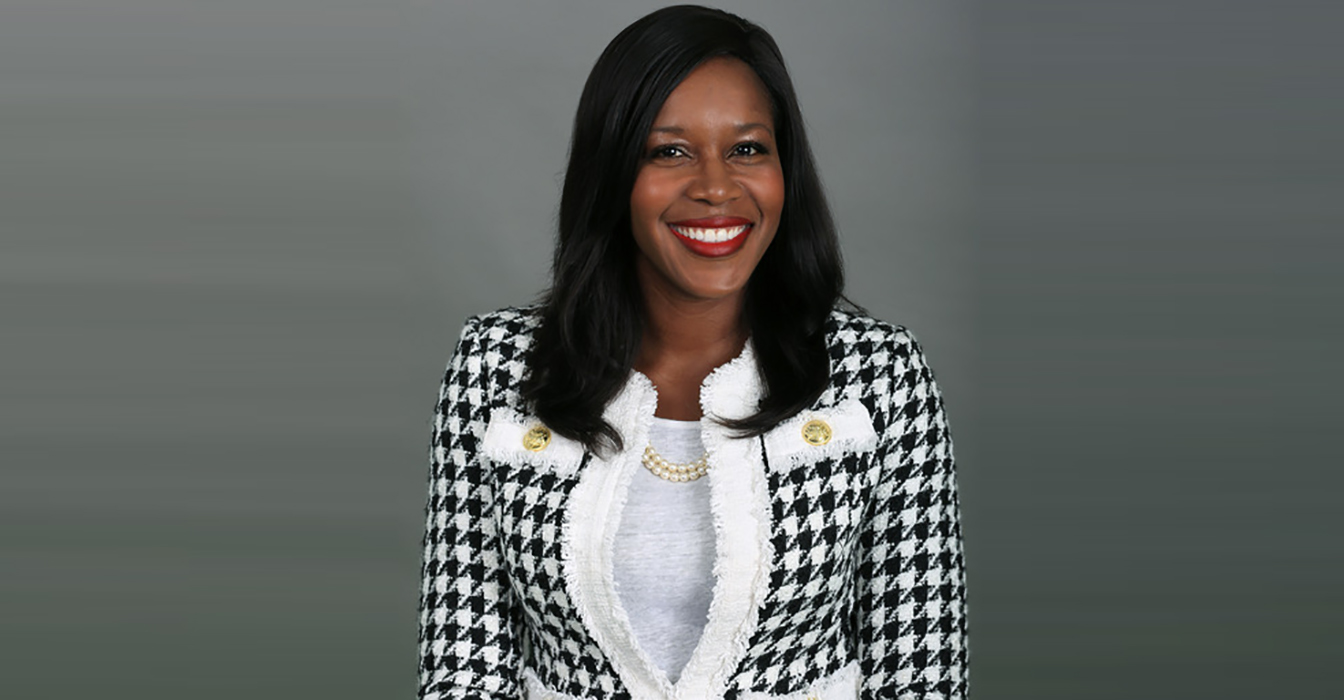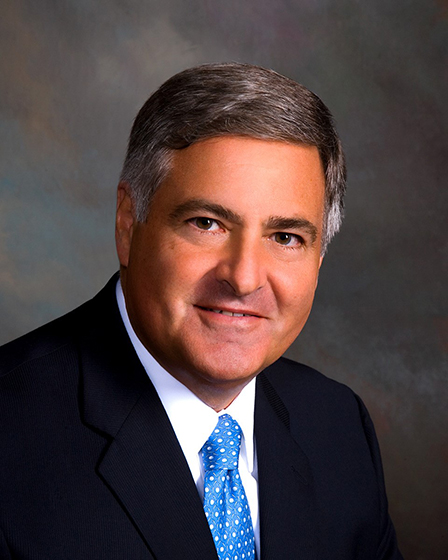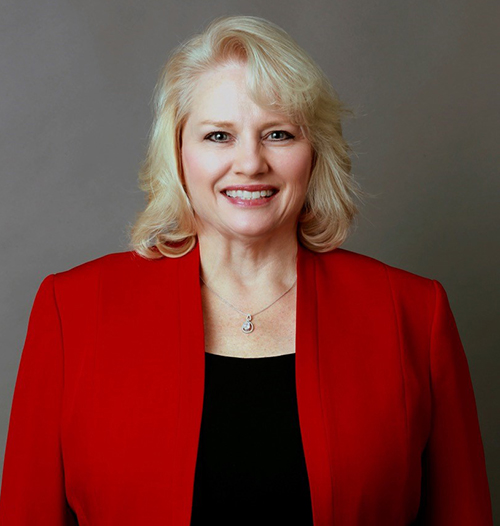The Ethos of Advocacy at Searcy Denney
By James Langford | February 17, 2021 | Lawyer Limelights, Searcy Denney

Shareholder Rosalyn Sia Baker-Barnes.
If an individual has been severely harmed or lost a family member from some form of wrongdoing, they know they need a good lawyer. That might be reason enough to call Searcy Denney, the leading plaintiff injury firm based in Florida which has, to date, obtained over $5B in verdicts and settlements.
What they might not know when they approach the highly effective firm, however, is the level of passionate advocacy and personal concern the firm commits to providing every one of its clients.
“Becoming a lawyer was, for me, a good blend of both advocacy and service,” says Rosalyn Sia Baker-Barnes, a member of the firm’s executive committee and a fierce and loyal advocate for clients. “I’m motivated by the fact that my job is to help this person, to try to put them in a better position than they're in when they come to my office on day one.”
The ethos is echoed by other top lawyers at the firm, including Jack Scarola, a former prosecutor, and Brenda Fulmer, who focuses on medical device mass torts and pharmaceutical litigation.
Each partner, like others in the storied firm, are fueled by a hunger for justice for clients who have had their lives altered by happenstance, ending up at the mercy of moneyed, powerful interests they cannot fight on their own.
“Although a trial can't bring somebody back, it can give your client a measure of justice, a feeling that they fought for their loved one, that they made every effort to hold folks responsible,” says Baker-Barnes, whose practice in medical negligence and product liability includes a $20M verdict against tobacco conglomerate RJ Reynolds on behalf of a woman whose mother died of lung cancer.
“It’s a great feeling as a lawyer when you can do something to help,” Baker-Barnes continues. “No, I couldn't bring her mother back, but that sense of gratitude, that sense of relief, that sense of redemption that she had from knowing that she fought for her mother, I think, made the many, many years of working this case and almost four weeks of trial worth it.”
Baker-Barnes, who has spent her entire career at Searcy Denney, obtained her law degree at Florida State University after earning an undergraduate degree in communications there and interning in the communications office of then-Gov. Lawton Chiles.

The firm – full name, Searcy Denney Scarola Barnhart & Shipley – specializes in plaintiffs’ litigation including personal injury, products liability, commercial litigation and professional negligence cases, and is the latest iteration of a firm that traces its roots to 1901. The firm developed its current focus under the leadership of Chris Searcy, a legend in the Florida trial bar who became the youngest attorney in the state to win a $1M jury verdict.
Scarola, a graduate of Georgetown Law Center, arrived at the firm in 1978, after serving as chief felony prosecutor in the Palm Beach County State Attorney’s Office.
“It was a job with a lot of discretion and authority that enabled me to be in the courtroom almost every day, and I love to be in the courtroom,” Scarola says. “There is no better training ground from my perspective for someone who wants to be a trial lawyer because there's not likely a better opportunity to get into the courtroom than when you are prosecuting cases.”
As a plaintiff’s attorney, Scarola has taken on high-profile cases including sex-trafficking claims against disgraced financier Jeffrey Epstein, who died in a Manhattan prison in August 2019, and an excessive force claim against the Palm Beach County Sheriff’s Office over a 2013 shooting that left 19-year-old Dontrell Stephens paralyzed from the waist down.
While a state jury awarded Stephens $22.5M, the Sheriff’s Office was required to pay only a statutory cap of $200,000. Under state law, any larger claim must be approved by Florida’s legislature, which holds a series of hearings in both chambers to consider its decision.
“The legislature is not bound by the jury's determination,” Scarola says. “So the case is in effect retried before both the Florida House and the Florida Senate. It is not only an extremely cumbersome and expensive process, it is an extremely political one.”
In mid-2020, four years after the jury’s verdict, Gov. Ron DeSantis signed a bill approving the payment of $6M. While amounting to a little more than a fourth of the original award, the payout represented a significant victory since very few claims bills are successfully pursued.
“Most claims bills never pass,” says Scarola, who is the firm’s vice president. “You need to hire lobbyists. You need to make the rounds within the legislature to garner support for the bill, and it makes obtaining any amount over and above $200,000 extremely difficult.”
Scarola recognized in the beginning the challenges of taking on the case and winning payment under Florida’s sovereign-immunity cap. As a former prosecutor, though, he believed the officer should be held accountable. As Scarola puts it, “Bad cops make the already difficult and dangerous job of law enforcement that much harder.”
Stephens had been riding a bicycle and talking on a phone when the officer pulled him over, Scarola says. The two then walked toward each other, just out of range of the patrol car’s dash camera, and four shots were fired.
While the officer said afterward that Stephens had reached behind his back and pulled out an object that he believed to be a gun, investigators found only a cell phone, and the jury quickly rejected the officer’s version of the events.
Local prosecutors nonetheless declined to file charges in the case, and the Sheriff’s Office never acknowledged any wrongdoing, eventually promoting the officer to the rank of sergeant and assigning him to train newer hires.
“When something like that happens, it cries out for an effort to correct the injustice,” Scarola says. “There was a young man whose life had been absolutely devastated, government agents who refused to accept any responsibility for what was done to him, and something had to be done. It’s cases like this that motivated me many years ago to go to law school.”
While DeSantis, the governor, approved the payout to Scarola’s client as racial-justice protests were gaining momentum around the country following the death of George Floyd in Minneapolis, the shooting itself predated those events by years.
In other cases handled by Searcy Denney, national and even global trends are litigation drivers, along with the ever-present desire to correct the wrongs done to individuals and families.

Fulmer, for instance, is leading an investigation into potential lawsuits over contaminated versions of a hair-loss drug from New York-based MasterPharm that left users with symptoms from heart palpitations to dizziness and nausea, which some believed were indications they had contracted Covid-19.
About 70 people in the Boca Raton area of south Florida were affected by the tainted 1.25-milligrams of Finasteride Plus, a generic form of Propecia, that MasterPharm subsequently recalled.
Patients started calling Fulmer with questions about the recall and what it implied. Fulmer leads the firm’s Mass Tort Unit, focused on complex litigation for defective drugs, medical devices and consumer products.
“We find cases in many different ways,” Fulmer explains. “Sometimes you figure it out because you start to get phone calls, and you start putting the pieces together. I’m very hands-on with the intake for our department because it's the best way to spot patterns. What seems like a random issue might not be random.”
Fulmer’s path to mass torts was far from linear, beginning when she was a 17-year-old college student working as a runner for a law firm, delivering documents to the courthouse and answering phones as needed.
As she worked her way through college, she became a legal secretary and later, a paralegal.
“At some point, I thought, ‘You know, I could do this,’” recalls Fulmer. Married at 18, she and her husband took turns putting each other through college, and she worked at law firms throughout.
When she graduated from Stetson College of Law, she returned to the firm where she had previously worked as a legal secretary and paralegal before moving to Searcy Denney.
Her practice in mass torts has been less affected by the Covid-19 pandemic that interrupted the rhythm of personal and professional lives nationwide than others, partly because many of the cases take years to prepare and are often settled before trial.
Scheduling trial dates is more challenging now, Fulmer says, with Covid-19 infection rates fluctuating in different parts of the country, prompting some states to curtail activities even as others move toward a broader economic reopening from prior lockdowns.
The widespread adoption of video-conferencing tools like Zoom, on the other hand, has facilitated hearings and may permanently streamline the litigation process, Fulmer notes.
“A phone conference doesn’t really work, partly because one of the participants invariably puts the call on hold and everyone else is subjected to hold music or ads,” she says, “but it’s amazing how well Zoom has worked. You can control who you hear, who you see, and share information.”
As for office operations, Fulmer’s unit operates on a hybrid model, with some attorneys working from home and others spending much of their time in the office. She has split her own schedule between the two options.
Baker-Barnes readily concedes that the pandemic has dissolved the typical boundaries between her personal and professional lives. Her three children, the oldest of whom is 12, are all doing remote-schooling because of the pandemic.
“It’s not like you can just put a computer in front of them and say, ‘OK, go to school,’” she says. “You have to log in, find out what they’re supposed to be doing, print papers and upload files. It’s a little chaotic.”
Outside of the classroom, meanwhile, racial justice protests over the summer afforded her and husband the opportunity to reinforce lessons they had already begun teaching their children.
“I’m Black, so my husband and I have emphasized the importance of them being proud of who they are, of their heritage, their ethnicity, from day one,” she says. “We've consciously chosen not to shield them from reality, and more importantly to equip them and prepare them for what we unfortunately know they and their friends and their cohorts are going to face.”
Because of that, the couple talked with their children about the deaths of George Floyd, who was being restrained by an officer, in late May as well as those of Ahmaud Arbery, shot after he was pursued by three white men while jogging near Brunswick, Ga.; and Breonna Taylor, a former paramedic shot to death during a botched police raid in Louisville, Ky.
“You're not going to be able to keep them in a bubble and make them think that it's not happening,” she says. “And so we chose to engage them. We actually organized a few protests ourselves here in Palm Beach County and then participated in others that were organized. Our kids helped make signs for the protest, and then we took them, masks, gloves, and everything else, and they protested with us.”
The drive for justice evidenced in the protests has also motivated Baker-Barnes in the medical malpractice cases she handles, which include catastrophic brain damage to infants and children.
Personal-injury attorneys must become more than lawyers, Baker-Barnes says, reflecting a sentiment that all Searcy Denney attorneys seem to embody. They become counselors for clients, many of whom are overwhelmed. Parents of a child with a severe brain injury don’t have a health-care worker running to their door, offering to help coordinate interaction with social service agencies or balance the responsibilities of daily life with caregiving, Baker-Barnes notes.
“You are who they go to for advice,” Baker-Barnes says. “You are who they call when they encounter a problem. You are their shoulder when they are at their wit’s end. You are always available. You have to be. They depend on you.”

